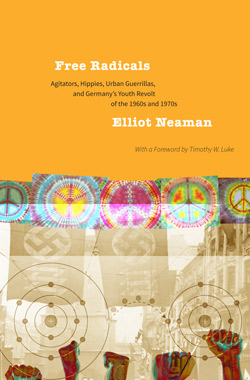 “There were actually at least two countercultures in 1968. The street mutineers dreamed of a political revolution, which was acted out as theater, using old scripts. In the second, politics became personal; emancipation came in the form of consumer choices. The first was collectivist and failed, the second was libertarian, individualistic, futuristic, and carried the day. In the United States Stewart Brand, the visionary who founded The Whole Earth Catalog in 1968, pithily described the difference as between ‘Berkeley and Stanford’: ‘Around Berkeley, it was Free Speech Movement, “power to the people.” . . .’ In Germany this kind of technology-as-revolution mindset was much more difficult to launch, given the entrenched romantic aversion to technology in the counterculture. . .”
“There were actually at least two countercultures in 1968. The street mutineers dreamed of a political revolution, which was acted out as theater, using old scripts. In the second, politics became personal; emancipation came in the form of consumer choices. The first was collectivist and failed, the second was libertarian, individualistic, futuristic, and carried the day. In the United States Stewart Brand, the visionary who founded The Whole Earth Catalog in 1968, pithily described the difference as between ‘Berkeley and Stanford’: ‘Around Berkeley, it was Free Speech Movement, “power to the people.” . . .’ In Germany this kind of technology-as-revolution mindset was much more difficult to launch, given the entrenched romantic aversion to technology in the counterculture. . .”
|
|
||||
|
Telos Press Publishing · PO Box 811 · Candor, NY 13743 · Phone: 212-228-6479 Privacy Policy · Data Protection Copyright © 2025 Telos Press Publishing · All Rights Reserved |
||||


